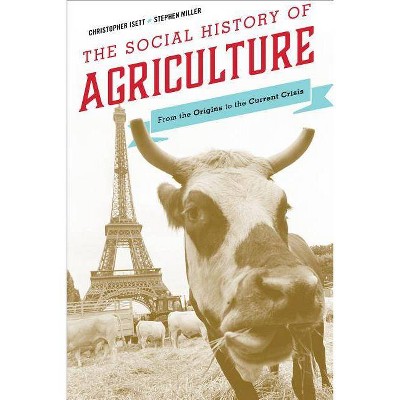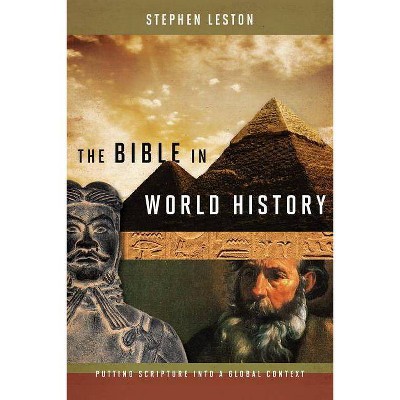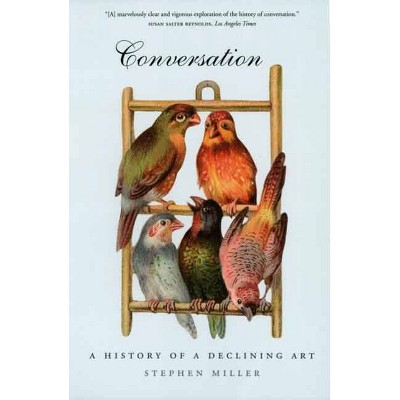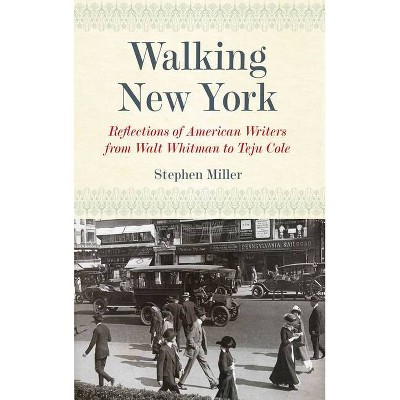The Social History of Agriculture - by Christopher Isett & Stephen Miller (Paperback)

Similar Products
Products of same category from the store
AllProduct info
<p/><br></br><p><b> About the Book </b></p></br></br>This text provides a compelling narrative world history through the lens of food and farmers. Tracing the history of agriculture from earliest times to the present, Isett and Miller argue that people rather than markets have been the primary agents of agricultural change, exploring the actions taken by individuals and groups over time.<p/><br></br><p><b> Book Synopsis </b></p></br></br>This innovative text provides a compelling narrative world history through the lens of food and farmers. Tracing the history of agriculture from earliest times to the present, Christopher Isett and Stephen Miller argue that people, rather than markets, have been the primary agents of agricultural change. Exploring the actions taken by individuals and groups over time and analyzing their activities in the wider contexts of markets, states, wars, the environment, population increase, and similar factors, the authors emphasize how larger social and political forces inform decisions and lead to different technological outcomes. Both farmers and elites responded in ways that impeded economic development. Farmers, when able to trade with towns, used the revenue to gain more land and security. Elites used commercial opportunities to accumulate military power and slaves. The book explores these tendencies through rich case studies of ancient China; precolonial South America; early-modern France, England, and Japan; New World slavery; colonial Taiwan; socialist Cuba; and many other periods and places. Readers will understand how the promises and problems of contemporary agriculture are not simply technologically derived but are the outcomes of decisions and choices people have made and continue to make.<p/><br></br><p><b> Review Quotes </b></p></br></br><br>An ambitious synthesis of twelve thousand years of world agricultural history. Through a social history approach that encompasses the study of political and economic systems, the authors contend that throughout history 'people's choices of what to grow, the technologies to use, and the labor regime to employ are shaped by their societies.' Such an approach allows for a nuanced discussion of complex agricultural developments that expands this topic beyond an emphasis on market forces. . . . Through a comparative approach that maintains attention to detail and cultural difference, this book succeeds as a comprehensive narrative history of the development of agriculture. . . . Isett and Miller have written a history of world agriculture that successfully addresses key questions for different eras. Readers interested in world agriculture of the past and present will find this work insightful.-- "Agricultural History"<br><br>Isett and Miller...populate their global survey of agricultural heritage with specific illustrations, widely diverse in time and region, to argue against the notion that growth in population and urban development created a need for additional agricultural commodities, which in turn created opportunities for producers to increase output, consume alternate goods, and focus on production of commodities of highest return. More generally, the authors explain agricultural phenomena less in stark economic terms and more in line with the sociopolitical phenomena and climate they believe more fully influenced agricultural development. Although their scope is primarily Western, Isett and Miller do look at examples in Africa, China, Taiwan, and Latin America. Chapters on socialist agriculture, and on corporate agriculture in Brazil and the United States, provide a good insight into two very influential patterns that developed at different points in the 20th century and beyond. Given this work's scope and complexity, it is recommended primarily for higher-level students, faculty, and professionals involved with agricultural economics and history. Summing Up: Recommended. Upper-division undergraduates and above; faculty and professionals.-- "Choice"<br><br>The Social Origins of Agriculture has many strengths which will enrich world history courses. This is an expansive narrative, extending from the late Neolithic to the present, and offering a rare overview of the entire sweep of agricultural history. . . . [T]wo of the book's strengths [are] its commitment to develop expansive comparisons across time [and] its emphasis on farmers themselves. . . . Isett and Miller extend their analysis back to the beginning, making for a provocative and useful study. It has only been a decade since the world's rural population fell under 50%. In our classes, narratives focused on urbanization, individualism and industrialization eclipse those focused on rural landscapes, village life, and agrarian production. Reading Isett and Miller can suggest opportunities to rethink that balance.-- "World History Connected"<br><br>This highly contextualized approach to the history of agriculture is impressively global and longue durée in scope. It is rooted, moreover, in case studies which are worth reading on their own merits irrespective of the argument they serve to underpin. It is in these case studies...that the textbook function of The Social History of Agriculture becomes apparent.-- "H-France Review"<br><br>In an extraordinary feat of interpretation, Christopher Isett and Stephen Miller have produced a theoretically informed history of agriculture, from its origins nine thousand years ago to the present. They have synthesized vast historical literatures on every major phase in the development of farming, from the rise of sedentary production, through the transition to capitalism, to the green revolution and beyond. They have also provided their own, always-illuminating resolutions of the debates over conceptual framework that have defined the field. An invaluable contribution for scholars, students at all levels, and general readers alike, it truly is a tour de force.--Robert Brenner, University of California-Los Angeles<br><br>In this audacious book, Isett and Miller argue that the key to understanding the emergence of the modern world is the epochal transformation of agrarian class structures. They show how their framework can account not only for the 'Great Divergence' between East and West, but also the 'Little Divergence' between Northwest Europe and the rest of the continent. Written with tremendous clarity and verve by two scholars in complete command of their subject, this is one of the best works of analytical history to have been published in recent years.--Vivek Chibber, New York University<br><p/><br></br><p><b> About the Author </b></p></br></br>Christopher Isett is associate professor of history at the University of Minnesota. Stephen Miller is associate professor of history at the University of Alabama at Birmingham.
Price History
Cheapest price in the interval: 53 on November 6, 2021
Most expensive price in the interval: 53 on February 4, 2022
Price Archive shows prices from various stores, lets you see history and find the cheapest. There is no actual sale on the website. For all support, inquiry and suggestion messagescommunication@pricearchive.us




















